The Tragedy of Macbeth
 for violence.
for violence.
Reviewed by: David Cook
CONTRIBUTOR
| Moral Rating: | Offensive to Very Offensive |
| Moviemaking Quality: |
|
| Primary Audience: | • Adults • Young-Adults |
| Genre: | Dramatic-Thriller Adaptation |
| Length: | 1 hr. 45 min. |
| Year of Release: | 2021 |
| USA Release: |
September 24, 2021 (festival) December 25, 2021 (limited) January 14, 2022 (Apple TV+) |
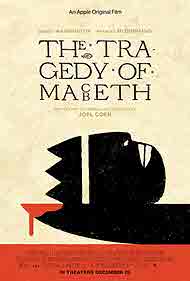

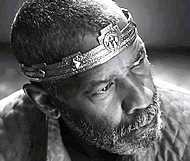
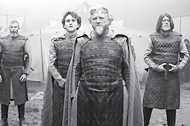
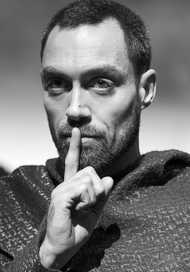
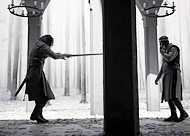
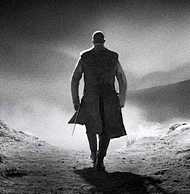
A Scottish lord who is deceived by 3 witches into believing he will become the next King of Scotland and that he is invincibile
The horrible evil actions of Lord and Lady MacBeth that follow are of their own doing and choosing, not the result of control by the witches
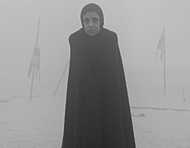
People actively trying to fulfill the prophecies of witches
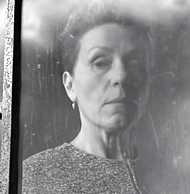
Ambitious wife who shares her husbands greed and lust for seizing power
Temptation in the Bible
How can I deal with temptations to do evil things?
Fictional witches with fantasy supernatural powers
About witches and witchcraft in the Bible
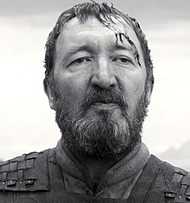
About murder
Treason
Grief
Revenge
About the fall of mankind to worldwide depravity
What is SIN AND WICKEDNESS? Answer
Learn about spiritual light versus darkness
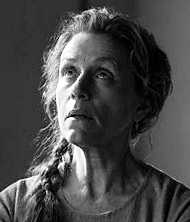
Burden of overwhelming GUILT which follows committing severe sins
Sleepwalking
Descent into madness
What is DEATH? and WHY does it exist? Answer in the Bible
What is the FINAL JUDGMENT? and WHAT do you need to know about it? Answer
What is ETERNAL LIFE? and what does the Bible say about it?
What is ETERNAL DEATH?
SUICIDE—What does the Bible say? Answer
Macbeth (2015)
| Featuring |
Denzel Washington … Macbeth Frances McDormand … Lady Macbeth Alex Hassell … Ross Bertie Carvel … Banquo Brendan Gleeson … Duncan Corey Hawkins … Macduff Harry Melling … Malcolm Kathryn Hunter … Witches / Old Man See all » |
| Director |
Joel Coen |
| Producer |
Joel Coen Frances McDormand See all » |
| Distributor |
“Is this a dazzling film which I see before me?” Yes. Yes, it is.
Within two minutes, I was mesmerized by “The Tragedy of Macbeth”—the most recent film adaptation of Shakespeare’s “Macbeth.” Directed by Joel Coen—one half of the acclaimed directing duo Coen brothers (“Fargo,” “No Country for Old Men”)—this film lives in an ethereal realm somewhere between the stage of a theater and the silver glow of a movie screen.
Macbeth (Denzel Washington — “Training Day,” “The Equalizer”) is the most respected soldier in 11th century war-torn Scotland. As he returns home with his comrade Banquo (Bertie Carvel—“Doctor Foster: A Woman Scorned”), he encounters three witches. They vow that Macbeth will be promoted to Thane of Cawdor and eventually become king. They also suggest that Banquo’s children will succeed him as king.
Once home, he and Lady Macbeth (Frances McDormand — “Fargo,” “Three Billboards Outside Ebbing, Missouri”) plot to assassinate the king. Their plot succeeds, and now they must remove every obstacle in their way that may hinder Macbeth’s rule. He doesn’t want his deeds to pave the way for Banquo’s children, so he must even try to kill his former comrade along with his family. Macbeth grows increasingly confident when the witches make two predictions: 1) he cannot be overthrown unless the forest walks, and 2) no one born of a woman can kill him. This makes Macbeth feel charmed, yet his guilt and shame begin to blur his reality and threaten his reign.
Macbeth’s shame impacted him immediately after he assassinated his king. That guilt leads to one disastrous choice after another. It’s reminiscent of King David. He was a great king, but his sin led to terrible choices that destroyed him from within.
Be merciful to me, Lord, for I am in distress;
my eyes grow weak with sorrow,
my soul and body with grief.My life is consumed by anguish
and my years by groaning;
my strength fails because of my affliction,
and my bones grow weak.Because of all my enemies,
I am the utter contempt of my neighbors
and an object of dread to my closest friends—
those who see me on the street flee from me. —Psalm 31:9-11
In the Psalms, King David calls out for God’s refuge, but in “The Tragedy of Macbeth,” Macbeth’s slow fall into depravity leads to ultimate destruction.
About the fall of mankind to worldwide depravity
What is SIN AND WICKEDNESS? Is it just “bad people” that are sinners, or are YOU a sinner? Answer
Are you good enough to get to Heaven? Answer
This is a fascinating story that has been excellently crafted into a film. Shakespeare’s language has sometimes been difficult for me to follow, but these filmmakers have masterfully used editing, sound, and music in a way that hypnotized me into a state where I could fully grasp every plot, every emotion, and every fear leading to Macbeth’s descent.
The performances are awe-inspiring—specifically the lead performances of Denzel Washington and Frances McDormand. Where their language may confuse me, their emotions kept me cognizant. This is enhanced by the directing decision to use a 4x3 narrow aspect ratio that brings the characters’ faces to the forefront. Their eyes tell me what is happening when the language is beyond me.
In my opinion, this film is truly a masterful achievement.
Content of Concern
That being said, it has elements (aka hurly-burly) that will be offensive to certain sensibilities—as would be the case with any of Shakespeare’s works. There are several moments of extreme violence. Specifically, the king’s assassination is graphic and horrifying both to the characters and to us as the audience. There is some very disturbing language delivered by Lady Macbeth of a sexual and violent manner. Also, the witches are very evil and very frightening—the way they move and speak will haunt certain audience members.
Adding to the brilliance of Shakespeare’s play, Joel Coen has made some creative decisions to strengthen this film adaptation. Particularly, he enhanced the character of Ross—originally a subordinate character. In this film, Ross (Alex Hassell — “Cowboy Bebop”) is a key component to drive the plot. His presence at every major event weighs heavily, and it makes you wonder, “is he fair, or is he foul?”
- Violence: Very Heavy (and often bloody)— • man stabbed in the throat • beheading in battle with head later displayed • execution by beheading • man’s throat slashed • man stabbed and pushed down stairs • assassins murder people, including a family with children • child thrown from height to his death • war battles • sword fights and stabbings resulting in deaths (man run through with sword) • woman falls to her death
- Occult: Very Heavy
- Profane language: Moderate— • “d*mn” (4) • “d*mnation” • “Good God” • “G*d” • Also mentioned are the devil and Beelzebub
- Vulgar/Crude language: Moderate— • “p*ss” • suggestive sexual hand gestures by a porter talking about lechery • “Unsex me” • “Come to my woman’s breasts and take my milk for gall” • “Birth-strangled babe” • “Pluck out my eyes”
- Sex: Mild— • Husband/wife kisses and hugs
- Alcohol/Drugs: Mild— • Drinking • Woman drugs King’s servants to sleep
- Nudity: Minor— • partial view of man’s bare chest
See list of Relevant Issues—questions-and-answers.


Let us not forget that William Shakespeare was a devout Christian, and his plays exhibit this Christian sense of morality and justice, acknowledging the evil in this world resulting from the Fall and the way that, in the words of Edmund Burke, “evil can only triumph when good men do nothing.” In this play, we have a man who is seduced into evil by the infernal suggestion of supernatural beings and sorcery, , and he seeks to commit evil in order to fulfill his own selfish and sinful ends. In contrast, we have a men like Malcolm (the rightful king after his father is slain) and MacDuff (whose family was viciously murdered by Macbeth because of his own moral opposition to Macbeth’s reign). These are men who, upon seeing the evil that is being carried out, finally decide that they can no longer sit idly by. In Shakespeare’s tragedy, evil only triumphs because evil is allowed to continue, and evil is put to a stop when men who realize what is evil put their foot down and, out of a sense of duty to God, country, and family, bring this evil to an end.See all »
Moral rating: Excellent! / Moviemaking quality: 5
PLEASE share your observations and insights to be posted here.



Macbeth’s tale has parallels to the times we live in, and emphasizes those comparisons by keeping the drama rooted in its own time when good and evil could be readily determined, and not brushed aside by philosophies of relativism and individualism. “Fair is foul and foul is fair” is one way of saying “there are rules for you and there are rules for me.” Shakespeare reveals how such a topsy-turvy, “hurly-burly” world leads us to a place where “by the pricking of my thumbs, something wicked this way comes.”
Gender roles play a key part in the tragedies of both King Macbeth and Lady Macbeth. The king (“too full of the milk of human kindness”) is seduced by supernatural evil (the three witches being an inversion of the three persons represented by God) whereas his wife takes her own steps to reach her desires, steps that lead to hallucinations, nightmares and madness (“Out damned spot, I say”). The scene of her demise at the bottom of a flight of stairs is bracing, and telling. She becomes a man (“turn my mother’s milk to gall”), abandoning her womanhood, in order to do a man’s evil deeds, thus magnifying her tragedy. Her un-sexing is her un-doing.
By accepting the false promises of evil, who disguises himself well, Macbeth concludes that “life is but a walking shadow… a tale told by an idiot, full of sound and fury, signifying nothing.” His descent has been, and is still today, a morality tale, one whose longevity is the result of having roots in Christian faith and Christian law: “…look into the seeds of time, and say which grain will grow and which will not.” Yes, trees and seeds and growth. Parables live on. In Shakespeare’ time. And in our own. And most surprisingly, in a mainstream film, an imaginative and a distinctive one.
My Ratings: Moral rating: Average / Moviemaking quality: 3½